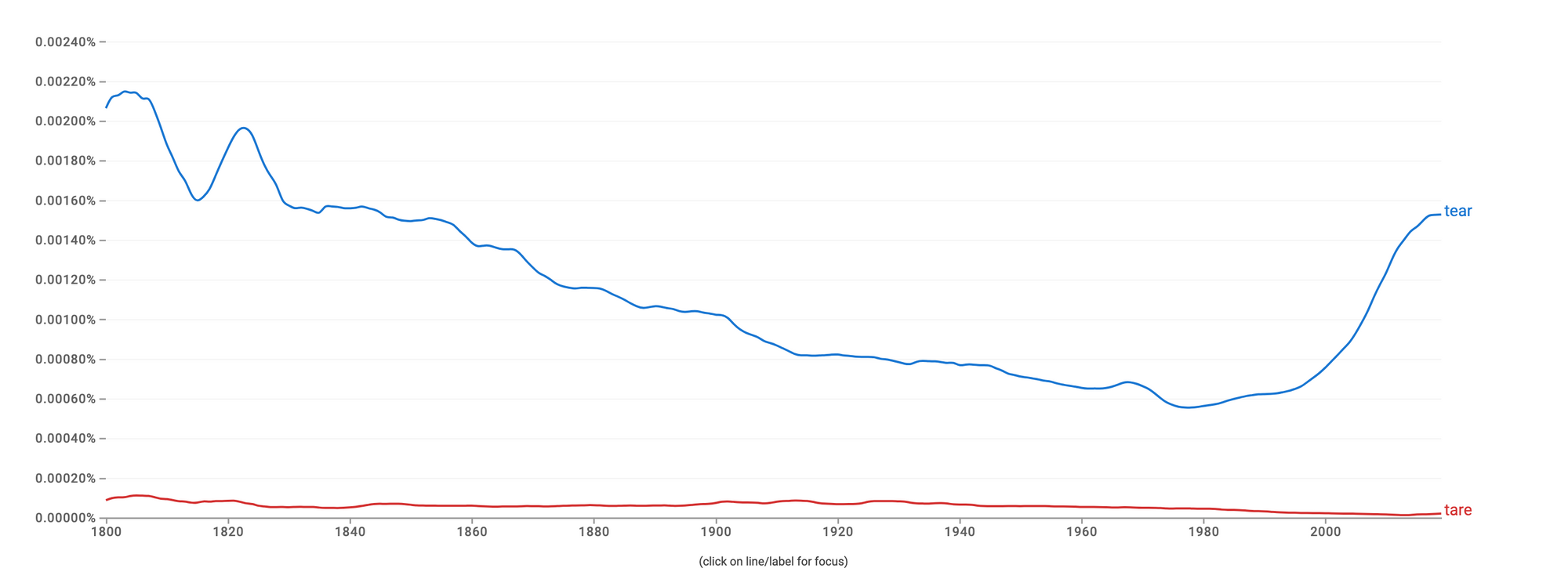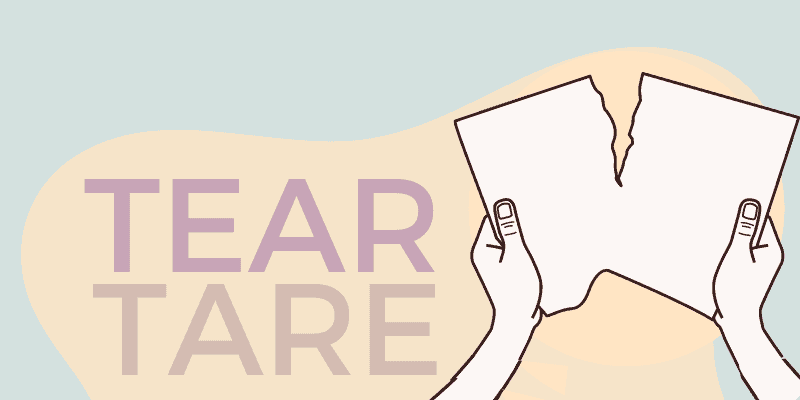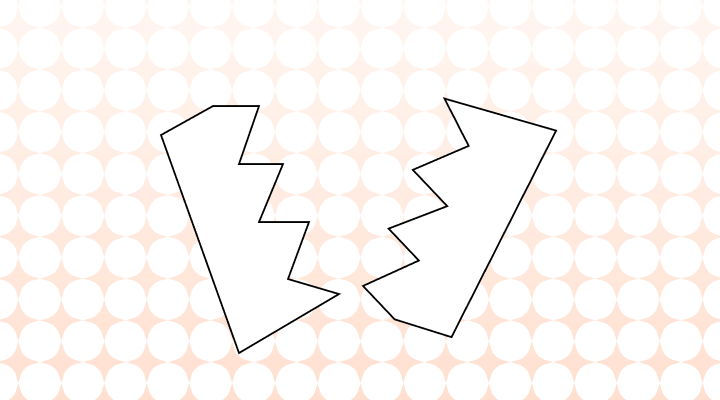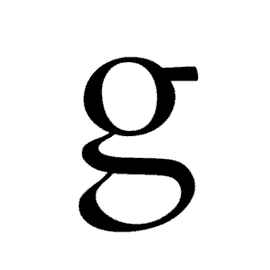"Tare" is commonly used in the context of weight measurement, particularly in trade and commerce. "Tear," as a noun, refers to a drop of salty liquid produced by your eyes. As a verb, "tear" signifies the action of ripping or damaging something by forcefully pulling it apart.
In the intricate tapestry of the English language, it's not unusual to encounter words that look and sound alike but have entirely different meanings. "Tear" and "tare" are prime examples of such linguistic confusions.
Despite their visual similarity, these words are worlds apart when it comes to meaning and usage. In this blog post, we will dive deep into the definitions of both "tear" and "tare," explore common idioms and phrases featuring these words, provide synonyms to enrich your vocabulary, and offer practice questions to help reinforce your understanding.
Tear is used on a more frequent basis compared to tare. However, if one sees the

Tear
As a noun, "tear" refers to a drop of clear salty liquid secreted by glands in your eyes, usually caused by strong emotions, irritation, or as a response to something touching your eye. As a verb, "tear" means to rip or damage something by pulling it apart forcefully. For example, "She shed a tear during the emotional movie," or "Be careful not to tear the paper."
Where does the word tear originate from?
The term "tear" has its origins in the Old English language, with its roots traced back to the word "teran," signifying the action of ripping or tearing.
Tare
"Tare" is a noun used in the context of weight measurement, particularly in commerce and trade. It denotes the weight of the packaging or container that holds a product, subtracted from the overall weight to determine the net weight of the product itself. In simpler terms, it's the weight of the container without its contents. For instance, when weighing a bag of flour, you would subtract the tare weight of the bag to ascertain the actual weight of the flour.
Where does the word tare originate from?
The word "tare" finds its etymological roots in medieval Latin, specifically from the term "tara," which conveys the idea of deduction or subtracting.
Common Idioms/Phrases:
- Cry over spilled milk: To express regret or sadness about something that has already happened, even though it cannot be changed. Example: "Don't cry over spilled milk; let's clean it up and move on."
- Tear up the rulebook: To defy convention or break established rules. Example: "She tore up the rulebook and pursued an unconventional career path."
Synonyms:
- Tear: Rip, shred, pull apart, damage
- Tare: Container weight, packaging weight, net weight deduction
Understanding the distinctions between "tear" and "tare" is not only an exercise in language precision but also an essential aspect of effective communication. These words may share visual similarities, but they play vastly different roles in the English language. By mastering their meanings, idioms, and synonyms, you can enhance your language skills and prevent common language pitfalls. Whether you're shedding a tear over a touching moment or carefully calculating the tare weight of a package, clarity in language is your guide to effective communication.
Practice Questions
- She couldn't help but shed a tear/tare when she heard the heartwarming story.
- When packing for the trip, don't forget to account for the tear/tare weight of your suitcase.
- The chef carefully weighed the ingredients, accounting for the tear/tare weight of the mixing bowl.
- It's essential to know the tear/tare weight of the packaging when shipping products.
- Don't tear/tare the important document; we need it for the meeting.
Answer key
- tear
- tare
- tare
- tare
- tear
Want to sound like a native speaker?
Engram’s AI-powered grammar checker makes your English sound like a native speaker’s, suggesting natural English expressions on top of fixing grammar, spelling, punctuation, word order, and vocabulary.

References:














